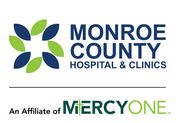How to Identify if Your Child Has a Broken Bone

Fractures are common in young kids due to their growing and fragile bones, with 1 in 3 experiencing a bone fracture in their childhood. They can be the result of a fall or car accident and commonly occur in the arm, elbow, or wrist. The following guide will help you determine whether your little one may have a broken bone and when it’s time to take them to the hospital.
A Parent’s Guide to Dealing With a Child’s Fracture
The Signs & Symptoms
Older children are likely to tell you as soon as they’ve fractured a bone, so you can get them to the hospital in a timely fashion. But with infants and toddlers who don't have the same communication skills, you’ll need to observe signs of injury.
Look out for signs of pain as your child tries to walk or lift a toy or object. The injury sight might also have bruising and swelling. If you’re present for the moment of injury, you might hear a snapping or cracking sound.
If the fracture has caused nerve damage, your child might experience numbness at the sight of the injury. With some fractures, like an elbow fracture, your child might be unable to straightening or move the limb normally.
Next Steps to Take
 If you suspect your child has a fracture, you’ll want to seek out medical help immediately. While you wait for the ambulance or before you leave for the hospital, you can take certain steps to make your child more comfortable.
If you suspect your child has a fracture, you’ll want to seek out medical help immediately. While you wait for the ambulance or before you leave for the hospital, you can take certain steps to make your child more comfortable.
For a broken bone that has cut through skin, make sure your child is lying down and apply pressure on the area with a sterilized gauze pad or cloth. Do not try to clean the area or push the bone back in place.
If you can’t see the bone, prioritize reducing movement in the injury sight by applying a splint or something similar. Elevate the limb and apply a cold compress to the area to reduce pain. However, you should not do this for toddlers or babies, as it can hurt their sensitive skin. Avoid giving your child any food, drinks, or medicine in case they need surgery.
Ensure your child’s quick and full recovery to the knowledgeable and reliable staff at Monroe County Hospital & Clinics in Albia, IA. For over 100 years, their experienced medical professionals have provided local residents with a range of services, including an outpatient clinic and cardiac rehabilitation and respiratory therapy services. Their on-site laboratory is convenient for urinalysis, blood work, and EKGs, and their 24/7 emergency room is always there to handle any urgent medical needs. Call (641) 932-2134, or visit them online to schedule an appointment.
About the Business
Have a question? Ask the experts!
Send your question

